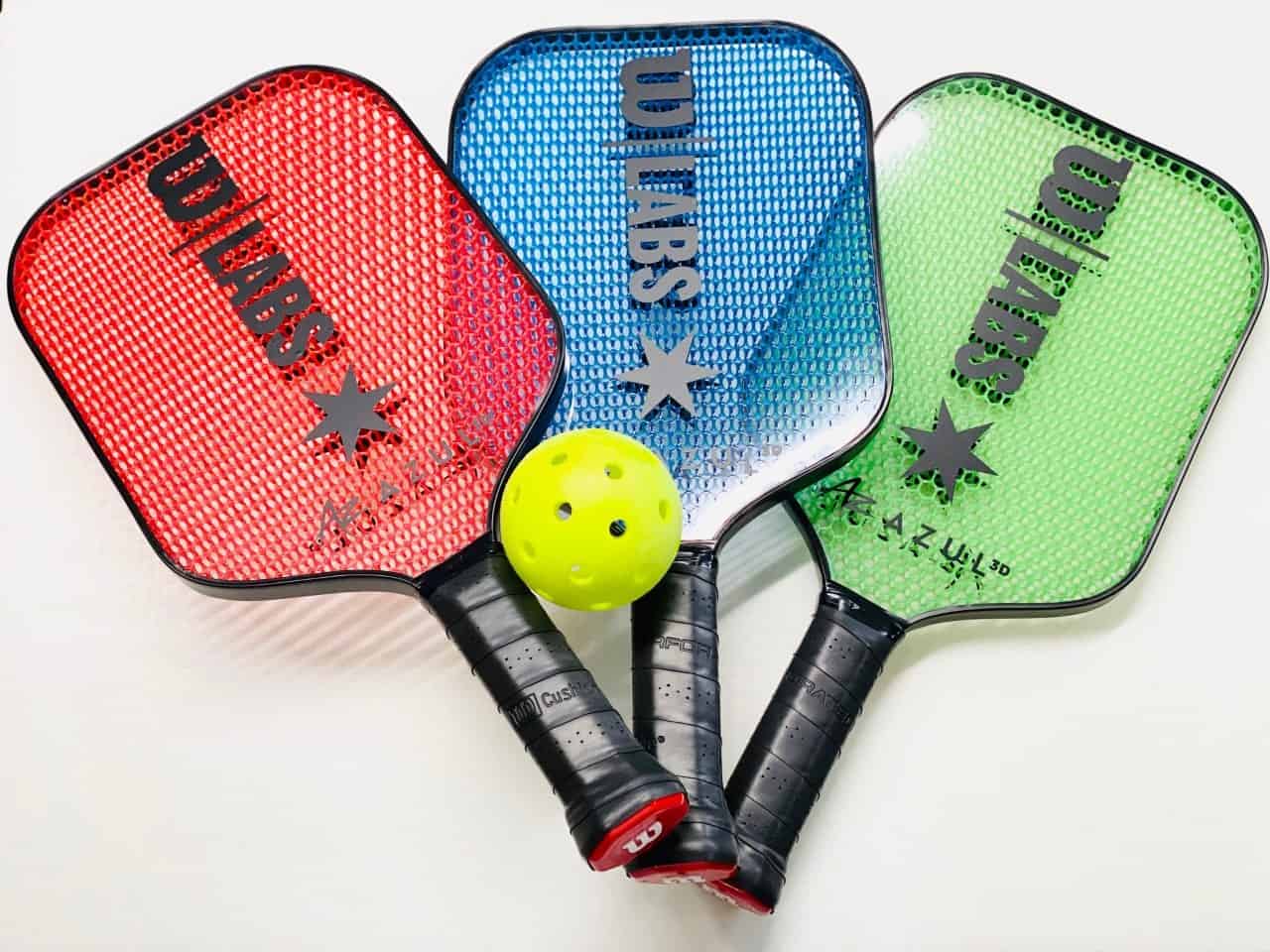Azul 3D has partnered with Wilson Sporting Goods, a sporting goods leader, to create two new 3D-printed pickleball paddle designs that will change the way the sport is played.
The two paddles – the Quiet Paddle, which significantly reduces the sound from ball hits, and the Custom Core Paddle, which is completely customizable to a player’s needs – represent a shift in paddle design and in how products can be completely re-thought through additive manufacturing.
The Quiet Paddle solves a major problem in the sport – the loud thwack that many pickleball paddles make when they hit a ball. Azul 3D and Wilson collaborated to design a 3D-printed paddle made of a true 3D lattice that is specifically designed to remove the frequencies that cause many hits to resonate throughout the court area, compared to 2D honeycomb cores designed for the aerospace industry.
The Custom Core Paddle takes a traditional pickleball paddle and makes it completely tunable with its lattice cores, which can be printed with different shapes and densities, depending on the player’s needs. Such design shifts can reduce dead spots or increase the punch in certain areas of the paddle.
Both paddles are created with Azul 3D’s proprietary materials, using the company’s high-area rapid printing (HARP) technology. The technology, a proprietary version of stereolithographic printing – a type of 3D printing that converts liquid plastic into solid objects using ultraviolet light – can print vertically at high speeds and over vastly larger print areas than current commercial 3D printers.
“Pickleball is one of the fastest growing sports in America,” said Bob Thurman, VP of Wilson Labs at Wilson Sporting Goods. “We were excited to work with Azul 3D to create a better paddle and better pickleball experience for our customers. We look forward to bringing this paddle to market.”
“We partner with companies as a full-stack solution, from material selection and design through implementation in their factories,” said Azul 3D CEO Cody Petersen. “With Wilson, we not only collaborated to make a better pickleball paddle – we were able to entirely rethink how the paddle is designed, thanks to our materials and technology.”
The paddles were printed on the company’s flagship product, the LAKE 3D printer, which provides unparalleled throughput and speed, and prints with the company’s wide array of proprietary industrial materials.
The collaboration also represents a true local partnership – both companies are based in Chicago. Because the entire paddle is printed with HARP technology, it reduces the parts needed from five to one, eliminating supply chain issues that have plagued manufacturing throughout the COVID-19 pandemic.


